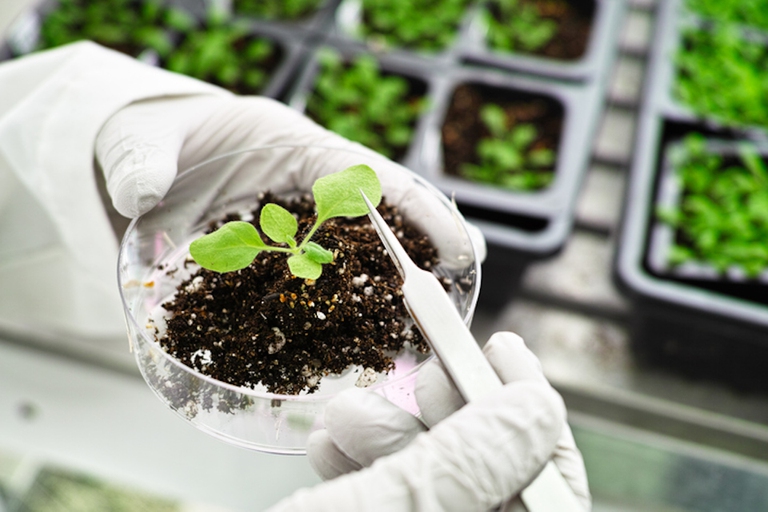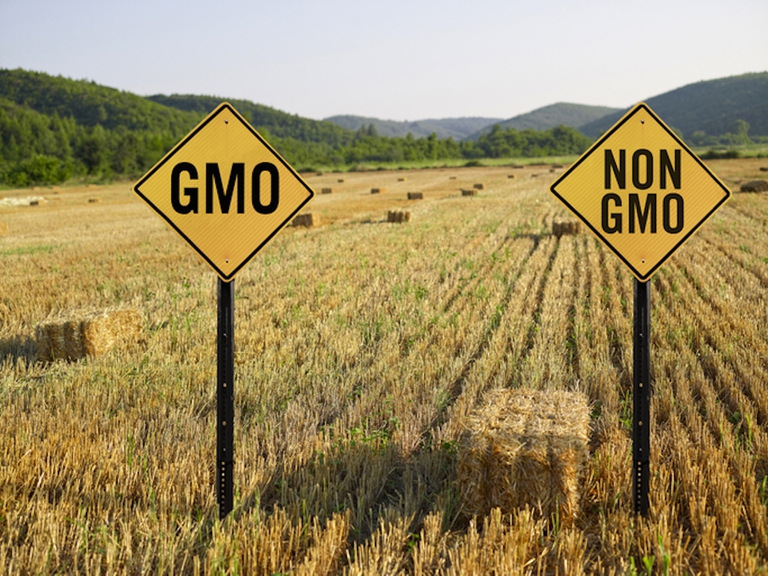https://www.lifegate.it/parlamento-europeo-approva-deregolamentazione-nuovi-ogm
- |
- The European Parliament has approved the European Commission's text for the deregulation of new GMOs (tea).
- MEPs approved two amendments imposing obligations on labeling and traceability.
- In fact, the vote had to take into account the growing amount of scientific literature on the potentially negative effects of tea, the impact on organic and non-GMO agriculture and the opposition of the majority of Italian and European citizens towards GMO food.
- For the GMO-free Italy Coalition, this is a serious vote that endangers producers, consumers and the environment.
The European Parliament has given the green light to the deregulation of the so-called "new GMOs", i.e new genomic techniques of assisted evolution (indicated by the name of tea, nbt or ngt) which allow implantation into an organism of DNA sequences coming from an organism of the same species.Parliament also approved two amendments to the text proposed by the European Commission to make thelabelling and the traceability of new GMOs.

What does the "deregulation" of new GMOs mean
Until now the new GMOs, according to European legislation, have been equated with transgenic organisms and therefore subject to the same precautionary principle, the aim of which is to guarantee a high level of environmental protection thanks to preventive positions taken in the event of risk, not full-blown damage;instead, with this text the European Commission aims to make a distinction between old and new GMOs and a deregulate teas in order to use them as a tool to improve crop productivity and make them more resistant to parasites, diseases and climate changes.
“If we want to make agriculture more sustainable, more resistant to pests and extreme weather conditions, if we want to produce more food in Europe and increase food security, then we need new genomic techniques,” said the proposal's rapporteur, l EPP MEP Jessica Polfjärd. “They will enable the development of improved crop varieties more precisely and quickly than any other traditional methods.”
Deregulation of new GMOs with obligations on labeling and traceability
As mentioned initially, the European Parliament approved the deregulation of tea but also voted on two amendments.The first concerns the obligation to indicate on the product label the wording “New genomic techniques” even when only one ingredient is created via tea.The second concerns the traceability through the transmission and storage of information relating to the content of tea, at every stage of its placing on the market.
GMO-free Italy coalition:“Serious vote against founding elements of the European pact”
The 42 organizations from the GMO-free Italy coalition (including WWF, Lipu, Legambiente, Greenpeace, Federbio, Assobio, Navdanya International) expressed a I deeply regret your vote of the European Parliament on deregulation judging the elimination of risk assessment on new GMOs serious and against the founding elements of the European pact.“Faced with the ongoing protests, the MEPs who threw away all the measures of the European Green Deal have also given in on this front, canceling 20 years of an approach based on the precautionary principle", stated the Coalition.“Today's vote does not resolve the problems of a regulation that weakens the legislation on genetically modified organisms, even if thanks to the understanding of a part of Parliament some limits have been placed on the damage that the initial proposal could have done”.

As underlined, in fact, the Coalition has maintained traceability and labeling obligations thanks to amendments presented by Social Democrats and Greens because the vote had to take into account one growing body of scientific literature on potentially negative effects of the numerous off-target mutations caused by teas, of the impact of biocontamination on organic and non-GMO agriculture and of opposition of the majority of Italian and European citizens towards genetically modified food.
According to the Coalition with this vote i consumer rights have been downsized and ibusinesses and farmers who use tea they will not be responsible for damages caused by the sale or cultivation of genetically modified varieties;Furthermore, the risk is that Europe will experience a further concentration of seed market thanks to a wave of patents already today requested by the largest multinational companies.
In a statement preceding the European Parliament vote, the Coalition explained:“The cancellation of mandatory controls on the basis of an equivalence that has never been demonstrated would make it impossible to predict the potential disruptive effects on the biochemistry and physiology of the plant and on the environment, with risks that go well beyond those that would result from conventional breeding.Indeed, it must be said that the production of large-scale involuntary mutations by tea-based genome modification processes is not hypothetical:there is a large and growing body of evidence in the scientific literature that demonstrates this.”
And again:“From the farmers' point of view, then, the safeguards introduced through possible seed labeling are insufficient to guarantee the separation of the supply chains, because farmers who do not want to cultivate genetically modified organisms have no guarantees that their fields can avoid the contamination caused from pollens of Ngt crops.The question is:who will pay for any damage caused by genetic pollution in a country like Italy, which has made GMO-free production its flagship in the world?”.

The next steps for the approval of deregulation
Now, for the new regulation on tea to definitively come into force, a opinion of the Council of the EU, that is, the Agriculture Ministers of the member states.Next, it would start three-way negotiation between Parliament, Council and Commission.In the Council, the opinion must pass by a qualified majority, i.e. at least 55 percent of the 27 countries representing at least 65 percent of European citizens.In an attempt made in November 2023, this majority was not reached and the opinion was postponed.
